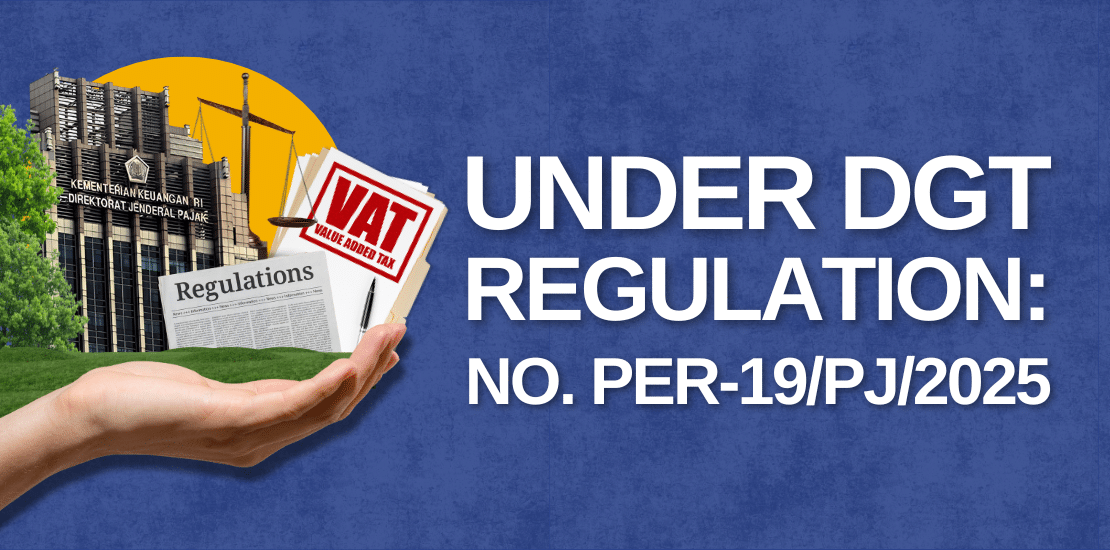<p>
PER-19/PJ/2025: Your eVAT-Invoice Access May Be Deactivated if You Fail to Comply! A new regulation underlines the DGT’s shift toward real-time, data-based compliance enforcement
- November 13, 2025
- Posted by: Administrator
- Category: Alert

The Directorate General of Taxes (DGT) has issued Regulation No. PER-19/PJ/2025 concerning Deactivation of Access for the Creation of Tax Invoices (Faktur Pajak) for Taxable Entrepreneurs (PKP) Who Fail to Fulfill Their Obligations under Tax Regulations (“PER-19”).
The regulation aims to strengthen legal certainty and promote taxpayer compliance through a digital mechanism. Under this new framework, DGT can in a systematic and data-driven way deactivate eVAT-Invoice (e-Faktur) access of noncompliant taxpayers.
-
- Criteria for eVAT-Invoice Deactivation
- The DGT has the authority to deactivate eVAT-Invoice access of taxpayers (PKP) that meet any of the following criteria:
- Criteria for eVAT-Invoice Deactivation
-
-
- Failure to withhold or collect taxes for three consecutive months;
- Failure to submit the Annual Income Tax Return (SPT Tahunan PPh);
- Failure to submit VAT Returns (SPT Masa PPN) for three consecutive months, or failure to submit for six VAT periods within one calendar year;
- Failure to report withholding/collection slips (bukti potong/pungut) for three consecutive months; or
- Having outstanding tax liabilities of at least:
- IDR 250 million for taxpayers under Pratama Tax Office; or
- IDR 1 billion for taxpayers under Madya or Large Tax Office,
that have already been subject to a warning letter and have no valid installment or deferral approval in effect.
-
If any of these conditions are met, the Head of Tax Office, through the mandate from the DGT, may deactivate the taxpayer’s eVAT-Invoice access. Once it is deactivated, the taxpayer loses the ability to issue valid tax invoices, effectively suspending all VAT-taxable transactions.
-
- Clarification Process by Taxpayers
PER-19 grants taxpayers the right to submit a written clarification to the Tax Office (KPP) where they are registered. This clarification must follow the official format prescribed in the Appendix of PER-19 and be supported with relevant documentation.
The Head of the KPP must review and issue a decision within 5 (five) working days from receipt of the clarification letter. Please be aware that the tax office may approve or reject the clarification submitted by the Taxpayer. In fact, if after reactivation, the taxpayer still meets the criteria for deactivation, the DGT may re-deactivate the eVAT-Invoice access.
This regulation marks a clear shift from traditional/manual supervision to a data-driven, electronic compliance regime. However, the clarification process can be highly subjective and the burden of proof lies entirely on the taxpayer.
The implications of deactivation are material and extend beyond administrative inconvenience:
- Taxpayers cannot issue valid Tax Invoices, making taxable supplies legally noncompliant;
- Exposure to monthly interest penalties (up to 24 months) for delayed VAT payments; and
- Potential penalty of 1% of the VAT base (DPP) on the seller’s side for defective tax invoices.
In short, e-Invoice deactivation is not a mere administrative pause — it carries financial and operational risks that can directly disrupt cash flow and compliance status. Therefore, taxpayers are expected to maintain well-organized, easily retrievable tax documentation to support any clarification request swiftly and effectively. Any delay or incomplete submission may prolong deactivation, potentially affecting business continuity and corporate credibility.
The regulation officially took effect on 22 October 2025.
</p>


